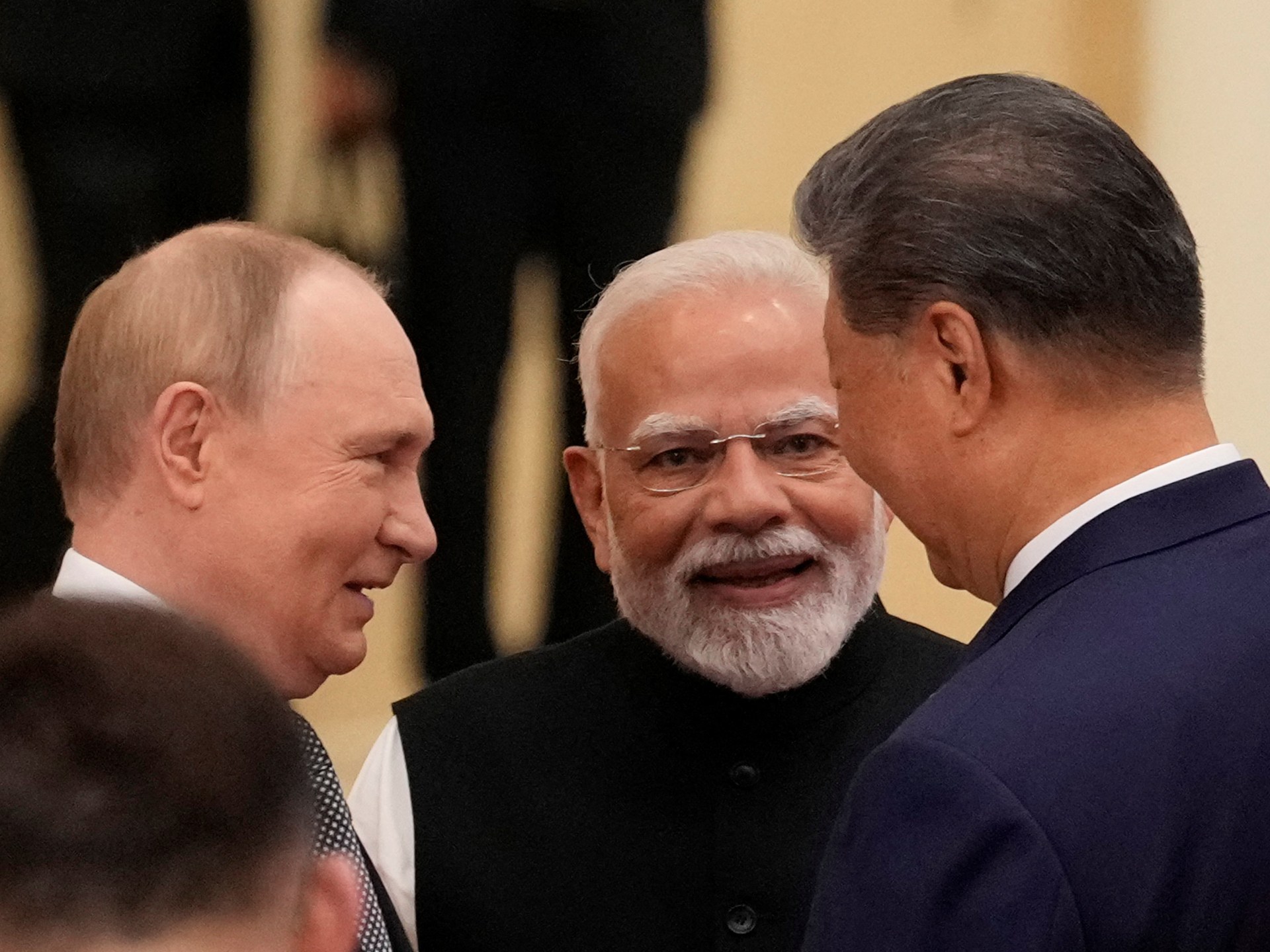At the Shanghai Cooperation Organization (SCO) summit, China and Russia presented their vision for a new international order to countries that shared the Beijing-led economic and security agenda with new financial incentives.
Chinese President Xi Jinping made remarks that were widely perceived as criticism of the United States at the summit on Monday, claiming that “global governance has reached a new crossroads.”
Xi urged people to continue to speak out against hegemonism and power politics and practice genuine multilateralism.
Vladimir Putin’s comments echoed those of Xi, who claimed that the SCO would “revive” “genuine multilateralism” as it lay the political and socioeconomic foundation for the creation of a new system of stability and security in Eurasia.
More than 20 leaders, primarily from the Middle East and Asia, gathered on Sunday and Monday for the summit in Tianjin, a city in northern China, to speak with Xi and Putin.
The 10-member SCO, which includes more than a dozen permanent dialogue partner nations, including Saudi Arabia, Cambodia, Qatar, and Turkiye, is seen as an alternative to the majority of US-led international institutions. It also includes much of Central Asia, Russia, China, India, China, India, Iran, Pakistan, and Belarus.
Xi outlined grander goals for the bloc at the summit despite the fact that the SCO’s activities have largely been symbolic since its founding in 2001.
Xi demanded the establishment of a new SCO development bank and announced grants worth 2 billion RMB ($280 million) and additional 10 billion RMB ($1.4 billion) in loans for SCO members.
According to Eric Olander, the editor-in-chief of The China-Global South Project, the institution’s transition into international finance represents a significant turning point.
It has been largely ineffective with few notable accomplishments since the organization’s founding 24 years ago, according to the organization’s founder. As the membership grows and Xi backs the SCO with development finance money, which is something we haven’t seen before, he told Al Jazeera, “I think that’s going to change.”
A new “Global Governance Initiative” (GGI) was also provided by Xi.
Olander said Xi’s speech provides insight into Beijing’s global ambitions despite being sparse on specifics beyond promoting values like “multilateralism” and “sovereign equality.”
With the GGI, Xi basically declares the loudest that China is attempting to establish a parallel global governance system with the US and the European-led order, something that would have been unthinkable ten years ago.
He attributed the shift to the Global South’s desire for greater influence in international affairs and the perceptions of the US’s role in global affairs.
Under President Donald Trump’s leadership, China’s push for multilateralism comes at a time when both countries are increasingly distrustful of one another. SCO members and sometimes-rivals, such as China and India, have shared grievances with each other.
Following skirmishes along their joint Himalayan border, New Delhi and China’s ties to one another fell in 2020.
According to analysts, Trump’s trade war has accelerated the thawing of diplomatic ties between the nations, despite the country’s relations beginning to normalize last year as a result of a border agreement.
The summit, which took place just days after Trump imposed a punitive 50% tariff on Indian goods and criticized India for its exports of Russian energy, was a chance for Xi and Narendra Modi to resolve their disagreements.
Another example of diplomatic unity was witnessed when Xi, Modi, and Putin were filmed conversing and walking together.
The majority of the world’s leaders attending the SCO will stay in China this week to attend a massive military parade in Beijing on Wednesday to honor the end of World War II in Asia.
Source: Aljazeera

Leave a Reply